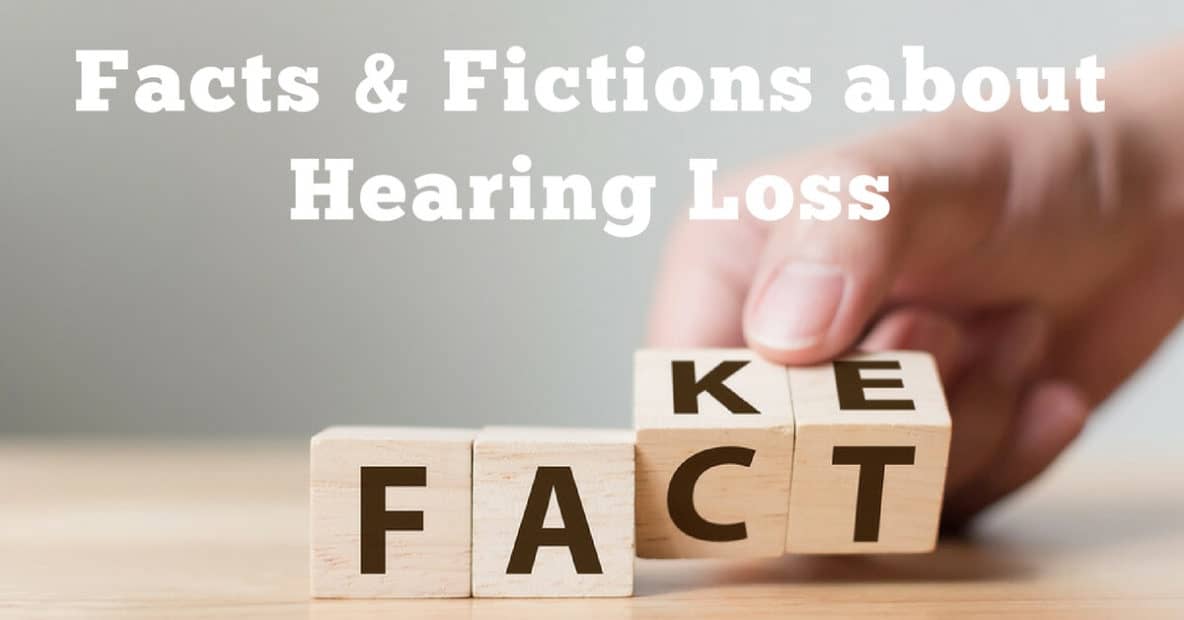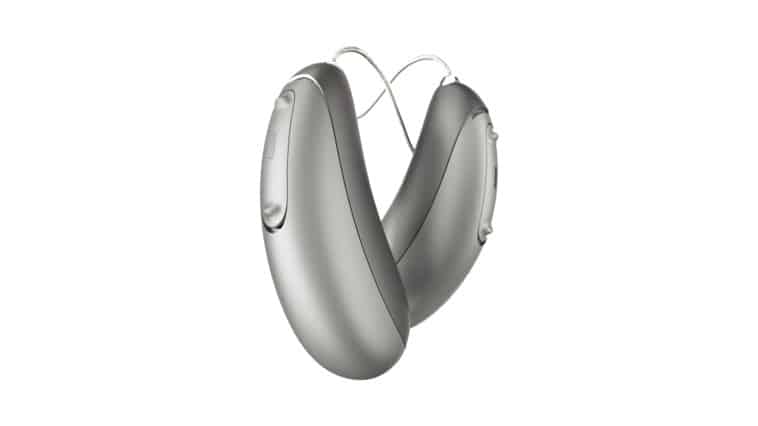0% financing available. Up to 3-year loss and damage guarantee.

Facts & Fictions about Hearing Loss
- Navigating the Conversation: The Significance of Thoughtful Disclosure in Hearing Loss - December 10, 2023
- The Sound of Dreams: Understanding How Hearing Loss Impacts Dreaming - November 7, 2023
- Traveling Effectively with Hearing Aids - October 16, 2023
You’d think that one of the leading public health issues would have much more clarity surrounding it. Instead, there seems to be confusion and misinformation associated with what it means to live with hearing loss today. So many of our ideas about hearing loss and its treatment is dated, even as much as a few generations old.
More than 48 million Americans report some degree of hearing loss. That means that one in five people in this country find hearing challenging, well aware of the way it affects so many aspects that contribute to quality of life. A large number of people with hearing loss today have chosen to intervene with hearing aids, which are sleeker and smarter than ever before. What’s more, new research is being released regularly that speaks to the numerous benefits of intervening in hearing loss. So now that we’ve cleared that up, here are a few more hearing loss mythologies we can deconstruct:
Only older people have hearing loss.
Actually, a large percentage of people with hearing loss are under 60 years old. 30% of people between the ages of 50 and 59 report some degree of hearing loss. That number climbs slightly as people enter their sixth decade, up to 45% of people between 60 and 69 reporting hearing loss. 75% of people over 70 have hearing loss, so the likelihood really does increase with age. However, today’s 70-year olds are much different from that same demographic 30 years ago. Today’s seniors are more active and vibrant, living fuller and longer lives than their predecessors. Hearing loss can interfere with these dynamic years, and successful intervention can seriously mitigate the negative effects of hearing loss.
It’s easy to self-diagnose hearing loss.
When it comes to the earliest signs of hearing loss, self-diagnosis is nearly impossible. This is because hearing loss often presents differently than one might expect. Instead of an all-around lowering of volume, hearing loss begins as a distortion of sound. Some sounds come in loud and clear, just as they ever were. But gradually, it will become more and more difficult to understand speech — it might seem as though everyone started to mumble all of a sudden. This is because people tend to lose certain frequencies first. If it becomes difficult to understand conversation, bring up your concerns to your physician who can perform a quick hearing test to see how your hearing health stands.
Simply talking louder will work when speaking with someone with hearing loss.
Because people with hearing loss will often lose the ability to hearing frequencies first, talking louder might not help very much in aiding understanding. Some words will remain difficult to understand despite your best efforts. Instead, make sure that you are facing the person with hearing loss with whom you are speaking. This allows them to use additional cues, like lipreading or facial expressions, to make sense of what you are saying. You might also try to rephrase a sentence if they appear confused after two repetitions. Potentially, different words that hit different frequencies will be more easily understood.
Hearing loss is an isolated condition.
The more research being done on hearing loss, the more we find the ways that hearing loss can impact many facets of health. Depression and feelings of low self-worth are commonly associated with hearing loss, often the result of difficult communication and the resulting isolating behaviors that crop up. Hearing loss has shown to be strongly linked to dementia, too. Because so much of what we perceive as listening actually happens in our brain, untreated hearing loss can impact cognition. Luckily, it appears that both of these conditions have a lower occurrence when hearing loss is treated.
Hearing aids are only for really bad hearing loss.
Intervening in hearing loss early on might actually prevent additional hearing loss, or at least slow its advance. What’s more, hearing aids give their wearers the opportunity to continue using the important advantage of reconnecting incoming sounds and the part of the brain dedicated to processing those sounds into what we experience as hearing. This means that the connection between the ear and the brain, the auditory nerve, remains used and relevant preventing stagnation or decay of its function. This has the potential to lower the risk of cognitive damage, as well as decrease the risk of depression.

